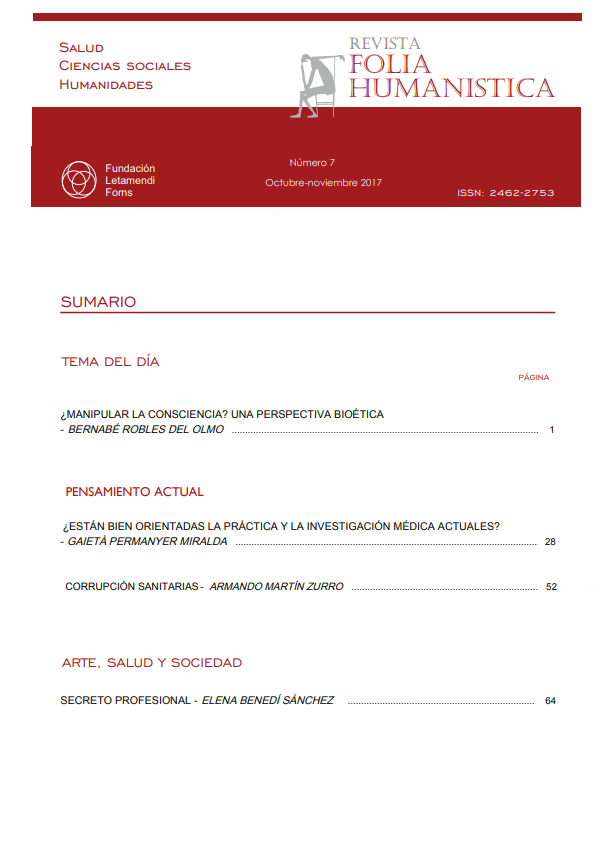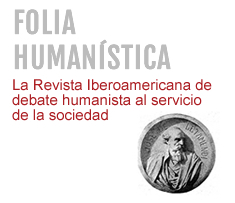Handling consciousness? A biothical perspective
DOI:
https://doi.org/10.30860/0029Keywords:
consciousness, handling, cognitive enhancement, ethicsAbstract
Handling consciousness has been an ancestral yearning of the Sapiens that has led them to develop different group methods (rites, rhythms, dances, harangues, even collective intoxications) and individual (hypnosis, torture, slogans, logos) to induce, modulate or alter perceptions or the will. Since the last century, pharmacological and biotechnological research pursues the so-called "cognitive improvement". It has also been achieved, through neurotechnologies, to detect non-apparent cortical activity in patients in a vegetative state, to reveal lies in testimonies, and even to erase or insert memories.
This last fact is analysed in the present article. We focus on two fundamental challenges that interventional neuroscience raises us: the first, scientific, it is about determining how much is true and how much fraud in that promised "improvement" in the different proposals. Related to the first, the second is ethically in content and polyhedral in form. On the one hand, we can question what we call “improvement”, as well as its potential consequences on individual freedom, privacy and equal opportunities. On the other hand, the enthusiasts of this "neuroenhancement" consider it inevitable for the "homo technologicus" development.
Downloads
Published
How to Cite
Issue
Section
License
La Revista Folia Humanística se adhiere a Creative Common en la modalidad: Reconocimiento – NoComercial – CompartirIgual (by-nc-sa): No se permite un uso comercial de la obra original ni de las posibles obras derivadas, la distribución de las cuales se debe hacer con una licencia igual a la que regula la obra original.








